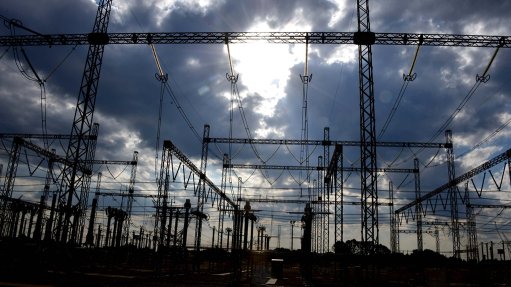New initiative aimed at developing climate-resilient sanitation for South African low-income communities
The Water Research Commission (WRC) has concluded an agreement with the eThekwini metropolitan municipality and the City of Cape Town to develop sustainable, climate-resilient sanitation systems.
Climate-resilient sanitation refers to sanitation systems, services and behaviours which can survive, function or quickly recover in the face of a range of climate-related shocks, chronic stresses and seasonable variabilities.
The selected technologies, which have been manufactured locally and incubated by the WRC’s next-generation sanitation acceleration programme, South African Sanitation Technology Enterprise Programme (SASTEP), are being tested to offer full recycling of water, nutrients and energy.
The climate-resilient, appropriate blackwater and greywater technologies have been developed specifically for informal settlements and other sites outside the sewer reticulation coverage.
They are also designed to be modular, easily deployable to cater for disaster preparedness and responsiveness by local governments as they refurbish or replace infrastructure and services.
“Sanitation and climate change are closely interrelated. Climate change impacts on sanitation through the damage and disruption of sanitation facilities and services, dislocation of people and hampering treatment, owing to rising temperatures, interrupted sanitation services and intermittent power supply,” explains WRC executive manager: innovations Dr Valerie Naidoo.
Low-income communities are the most vulnerable to the climate-related impacts of disrupted sanitation systems, she highlights, noting that people in informal settlements often live in flood-prone areas and bear the brunt of extreme climatic events like floods, owing to displacement or a complete destruction of the limited sanitation facilities that they had.
“In times of drought, the lack of water availability results in waterborne systems being less effective as a sanitation system and low-income and social housing households are most hit.”
Recent climatic disasters, such as floods in KwaZulu-Natal and droughts in areas such as Cape Town, the Eastern Cape and Limpopo, have impacted on both water and sanitation systems.
“There have been instances where communities have had to resort to open defecation where emergency response has been slow or nonexistent, which can potentially result in further public health and pollution challenges,” says SASTEP programme manager Akin Akinsete.
“Through this partnership with the City of Cape Town and eThekwini, we wish to evaluate the technology against a climate resilience framework, with Bristol University as a partner.”
Should this initiative be successful and the desired outcomes achieved, a similar approach could be replicated in other metros and municipalities where urgent intervention is needed, Akinsete adds.
Article Enquiry
Email Article
Save Article
Feedback
To advertise email advertising@creamermedia.co.za or click here
Press Office
Announcements
What's On
Subscribe to improve your user experience...
Option 1 (equivalent of R125 a month):
Receive a weekly copy of Creamer Media's Engineering News & Mining Weekly magazine
(print copy for those in South Africa and e-magazine for those outside of South Africa)
Receive daily email newsletters
Access to full search results
Access archive of magazine back copies
Access to Projects in Progress
Access to ONE Research Report of your choice in PDF format
Option 2 (equivalent of R375 a month):
All benefits from Option 1
PLUS
Access to Creamer Media's Research Channel Africa for ALL Research Reports, in PDF format, on various industrial and mining sectors
including Electricity; Water; Energy Transition; Hydrogen; Roads, Rail and Ports; Coal; Gold; Platinum; Battery Metals; etc.
Already a subscriber?
Forgotten your password?
Receive weekly copy of Creamer Media's Engineering News & Mining Weekly magazine (print copy for those in South Africa and e-magazine for those outside of South Africa)
➕
Recieve daily email newsletters
➕
Access to full search results
➕
Access archive of magazine back copies
➕
Access to Projects in Progress
➕
Access to ONE Research Report of your choice in PDF format
RESEARCH CHANNEL AFRICA
R4500 (equivalent of R375 a month)
SUBSCRIBEAll benefits from Option 1
➕
Access to Creamer Media's Research Channel Africa for ALL Research Reports on various industrial and mining sectors, in PDF format, including on:
Electricity
➕
Water
➕
Energy Transition
➕
Hydrogen
➕
Roads, Rail and Ports
➕
Coal
➕
Gold
➕
Platinum
➕
Battery Metals
➕
etc.
Receive all benefits from Option 1 or Option 2 delivered to numerous people at your company
➕
Multiple User names and Passwords for simultaneous log-ins
➕
Intranet integration access to all in your organisation
















